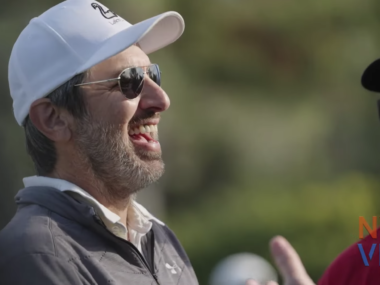NY APPEALS COURT OVERTURNS HARVEY WEISNTEIN’S SEX CONVICTION
There is no doubt that movie mogul Harvey Weinstein was a sexual predator who assaulted and threatened hundreds of women for years, according to their accounts documented by journalists and court testimony, during his years as a powerful and tyrannical Hollywood producer.
Since 2017, the allegations of more than 100 women whose lives were shattered and ruined by his Weinstein’s behavior not only put a spotlight on the entertainment industry but all workplaces in all businesses which then elevated the #MeToo movement leading to an overdue review of sexual misconduct and abuse by those in power in society.
Weinstein was convicted of sexual assault by courts in both New York and Los Angeles.
So why did the New York Court of Appeals overturn this conviction?
APB consulted with legal scholars and listened carefully to Weinstein’s attorneys who told our microphones on the day of sentencing that while Weinstein might be an ugly figure the trial was unfair – a trial that the lawyers were able to argue to the appeals court that the legal system that applies the law equally to everyone, guilty and innocent – was not applied in such a fashion for Weinstein.
Weinstein’s attorneys argued the judge should not have allowed “prior bad acts” witnesses to testify and should not have given prosecutors the ability to question Weinstein about instances of verbal abuse and bullying on cross-examination.
The Court of Appeals agreed with the defense on those points.
In general, evidence that a defendant has poor character or has done bad things in the past is not allowed during a trial. The concern is that the jury will be overly influenced by these prior incidents and may ignore the actual evidence of the alleged crime.
New York judges have a fair amount of discretion to decide what is and what isn’t allowed in court as they try to balance the relevance of the testimony against the prejudice to the jury while California is more stricter on what evidence and testimony can be heard.
Weinstein was conviction in 2020 of committing a criminal sexual act and third-degree rape in New York and sentenced to 23 years in prison.
Now, In a four to three decision, the New York State Court of Appeals found that the trial judge should not have allowed testimony by four women whose allegations of assault by Weinstein were not previously proved in court or among the charges in the case.
The inclusion of the witnesses could have had an improper effect on the jurors judging Weinstein, the appeals court found.
The Manhattan District Attorney’s Office said it plans to retry the case.
Subscribe to our YouTube!
Follow us on Instagram – https://www.instagram.com/vibenyc/?hl=en
Follow us on Twitter – https://twitter.com/vibeofnyc
Follow us on TikTok – https://www.tiktok.com/@badermedia











